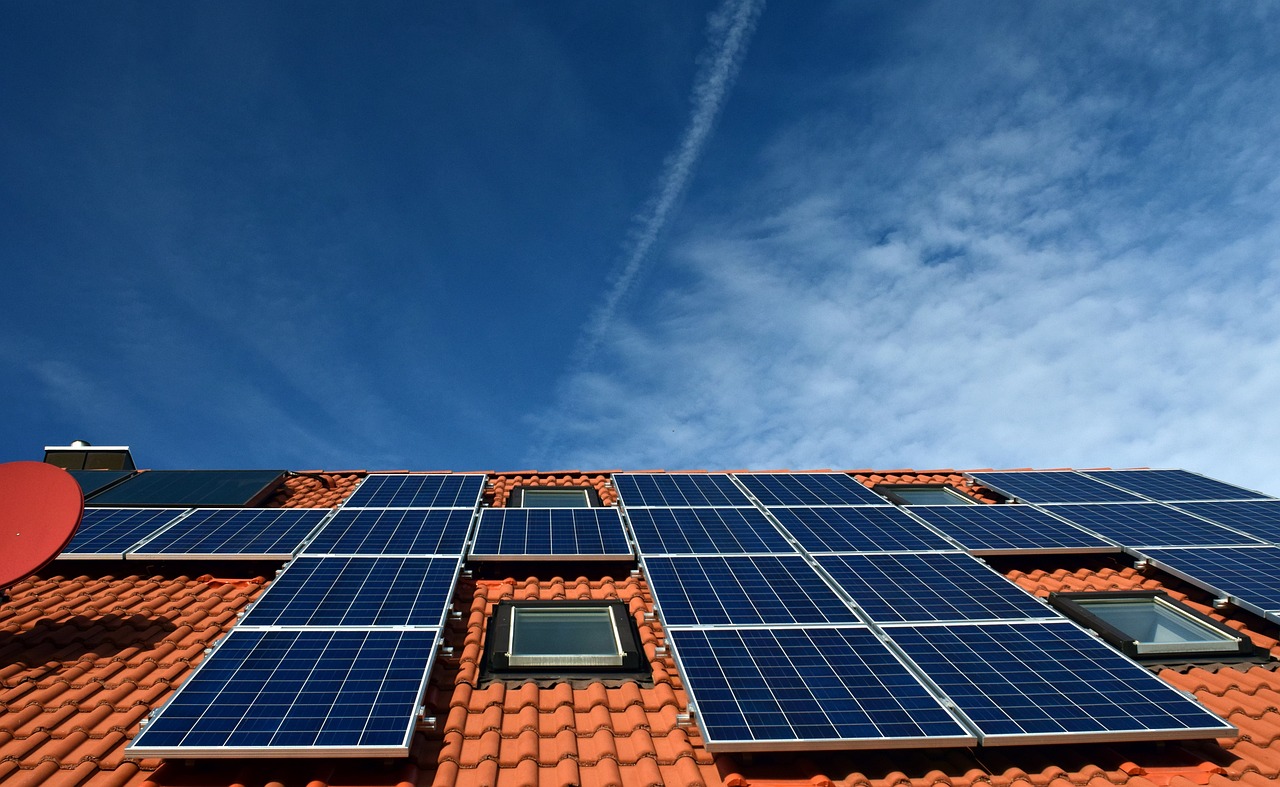Switching to solar power by installing solar cells on your house can have numerous advantages, ranging from environmental benefits to financial savings. As the world moves towards more sustainable and renewable energy sources, solar cells offer an excellent opportunity for homeowners to contribute to a greener future while enjoying several practical benefits. This guide outlines the key advantages of incorporating solar cells into your home.
- Renewable and Sustainable Energy Source:
- Solar energy is a renewable resource, meaning it won’t run out as long as the sun is shining. Unlike fossil fuels, which are finite and contribute to climate change, solar power helps reduce carbon emissions and dependency on non-renewable resources.
- Reduced Electricity Bills:
- One of the most compelling advantages of solar cells is their ability to generate electricity from sunlight, reducing your reliance on utility companies. By producing your own electricity, you can significantly lower your monthly electricity bills or even eliminate them entirely, depending on your system’s size and local regulations.
- Long-Term Cost Savings:
- While the initial investment in solar cell installation might seem high, it’s important to consider the long-term financial benefits. Solar systems have a lifespan of 25-30 years or more, providing a steady stream of electricity and cost savings over their operational lifetime.
- Low Maintenance Requirements:
- Solar cells require minimal maintenance. Regular cleaning and occasional inspections to ensure optimal performance are usually sufficient. Most reputable solar companies provide warranties that cover system maintenance and repairs, making the upkeep hassle-free.
- Energy Independence:
- Generating your own electricity means you’re less susceptible to fluctuations in energy prices and supply disruptions. This independence can provide stability and peace of mind, especially in times of energy crises or price hikes.
- Increase in Property Value:
- Homes equipped with solar panels tend to have higher property values and sell faster than homes without them. Potential buyers are often attracted to the idea of reduced utility bills and eco-friendly features.
- Government Incentives and Tax Benefits:
- Many governments offer incentives, tax credits, and rebates to encourage the adoption of solar power. These incentives can significantly offset the initial installation costs, making solar cells a more financially viable option.
- Environmental Benefits:
- Solar power significantly reduces your carbon footprint, as it produces clean energy without emitting greenhouse gases or other pollutants. By using solar cells, you’re contributing to the fight against climate change and supporting a cleaner environment.
- Job Creation and Economic Growth:
- The solar industry has experienced rapid growth in recent years, leading to the creation of jobs in manufacturing, installation, maintenance, and research. Supporting solar energy can contribute to local and national economic growth.
- Technological Advancements and Innovation:
- The solar industry continues to evolve, with ongoing research and development leading to improved efficiency, better storage solutions, and innovative applications of solar technology. By adopting solar cells, you’re contributing to the advancement of clean energy technology.
What should I consider when evaluating offers on solar cells?
Conclusion:
Embracing solar power by installing solar cells on your house offers a multitude of advantages, ranging from reduced electricity bills and financial savings to environmental benefits and increased property value. With ongoing technological advancements and governmental support, now is an opportune time to harness the power of the sun for a brighter and more sustainable future.
When evaluating offers on solar cells for your home, it’s essential to take a comprehensive and informed approach to ensure you’re making the right decision. Here are key factors to consider:
- Solar System Cost:
- Compare the upfront costs of different offers. This includes the cost of solar panels, inverters, installation, permits, and any additional equipment. Be cautious of extremely low-cost offers, as they might compromise on quality.
- Quality of Components:
- The quality of solar panels, inverters, and other system components directly affects the system’s performance and lifespan. Opt for reputable brands and technologies known for durability and efficiency.
- Energy Efficiency and Output:
- Evaluate the solar panel’s efficiency rating, which indicates how effectively it converts sunlight into electricity. Higher efficiency panels might cost more but can generate more electricity in less space.
- Warranty and Guarantees:
- Check the warranties offered for both equipment and installation. A standard warranty for solar panels is around 25 years, while inverters might have shorter warranties. Make sure you understand what is covered and for how long.
- System Size and Output:
- The size of the solar system should be tailored to your energy consumption needs. Assess your average electricity usage to determine the appropriate system size that will cover a significant portion of your energy needs.
- Local Regulations and Incentives:
- Research local regulations, permitting processes, and any available incentives, tax credits, or rebates for installing solar. These can significantly impact the overall cost and return on investment.
- Installer Reputation and Experience:
- Choose a reputable and experienced solar installer. Look for customer reviews, references, and examples of their previous work to gauge their professionalism and reliability.
- Financial Considerations:
- Evaluate the financing options available, such as purchasing, leasing, or power purchase agreements (PPAs). Each has its own financial implications and terms, so choose the one that aligns with your budget and long-term goals.
- Projected Savings and ROI:
- Ask the installer to provide a detailed estimate of your projected energy savings over the system’s lifespan. Compare this against the upfront investment to determine your return on investment (ROI).
- Maintenance and Monitoring:
- Inquire about maintenance requirements and ongoing monitoring. Some companies offer remote monitoring to ensure your system is performing optimally, while others may provide maintenance packages.
- Customer Support:
- Ensure the installer offers reliable customer support for any issues that may arise during or after installation. Clear communication channels and responsive customer service are important.
- Aesthetics and Installation Process:
- Consider the aesthetics of the solar installation, as it will become a part of your home’s appearance. Discuss the installation process and any potential disruptions with the installer.
- Battery Storage (if applicable):
- If you’re interested in energy storage, inquire about the possibility of adding battery storage to your solar system. This can provide backup power during outages and increase your energy independence.
- Multiple Quotes:
- Don’t hesitate to request quotes from multiple solar companies. This allows you to compare offers, pricing, and terms to make an informed decision.
By carefully considering these factors and doing thorough research, you can select the solar cell offer that best meets your energy needs, financial goals, and environmental aspirations.
A company in Sweden Sol & Takspecialisten AB has free home visits for quotes

